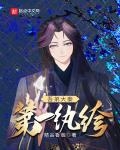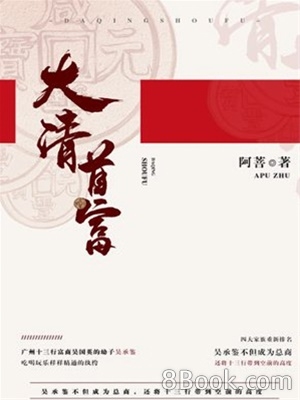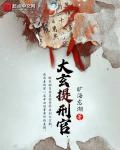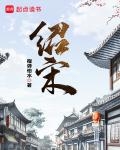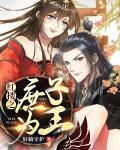Chapter 165: The Two Parties Meeting Face to Face (V)
Huo Chong couldn't quite understand the stupidity of the Qing army. Wasn't it said that this was a time when the Qing army had not yet completely decayed? Wasn't it said that this was a time when the Qing army still had fighting power?
Twenty thousand people facing a few thousand people, shouldn't they just rush over with a roar? Get close with perfect preparations, then stick to the opponent and start a war of attrition. This was the worst situation for the Han regime that Huo Chong had made when he was doing battle simulations.
However, this did not happen. The Qing army has not taken any action so far, which directly gave the Han regime a very interesting choice.
Should we summon up our courage and surround and annihilate the Qing army? If we succeed in the end, it will undoubtedly be like throwing out a leopard. Yes, it is like throwing out a leopard.
The so-called leopard refers to the dice game in which all the dice must have the same number of points, and at the same time, the number must be red.
One of the many battle options before Huo Chong was to surround and annihilate the 20,000 Qing troops in the wild. This not only required the Han army to act quickly and accurately, but also required the cooperation of the other side.
If this plan fails, the Han army will have to prepare various plans, just like Huo Chong has to prepare progress and plans when he is working on a project.
During the time when Qian Qing was away from the General Staff, the young staff officers who were forced to take on the task looked at the draft paper with cold brows and bit their pencil tips angrily.
Qian Qing's return has greatly improved the progress of the General Staff Department. In particular, Qian Qing has conducted field work in Jinan and has a first-hand understanding of the current situation.
The plan was completed quickly. Qian Qing and other staff members who had not slept for a whole day were driven away by Huo Chong to sleep. As a result, at noon, the special forces team came back to report with a guilty conscience. They had seized the Qing army camp on the road leading to Jinan Prefecture.
However, everyone was too soft-hearted at the time and allowed several Qing prisoners who were not executed on the spot to escape.
Huo Chong was also very surprised to see these guys like this. He had never seen them so cruel and merciless on weekdays. After asking carefully, he found out that his beloved apprentice Qian Qing led the team this time and killed more than a hundred prisoners with his own hands. He killed them after interrogating them, without mercy.
The killing made the special forces soft-hearted. That's when the problem of launching a sneak attack and leaving prisoners behind arose.
However, these people also knew that they couldn't be so merciful. At least on the battlefield, mercy to the enemy would not be understood by the enemy. Since they had already killed a lot of enemies, the remaining enemies would only think that they could still survive at this time, but they would kill them later.
Things had come to this point, and Huo Chong had no choice but to force the issue. He let the staff members fall asleep first, and Huo Chong, who participated in the whole process of making the plan, called the captains of each team and explained the battle plan to them.
All the guides in the previous task force returned to the team and led the troops to the designated location according to the plan.
Just as Huo Chong expected, the three Qing soldiers who escaped were desperately rushing towards Jinan City. The journey was extremely tiring, and when they saw a village in front of them, the three Qing soldiers didn't think much and went straight into the village. They happened to see someone pushing some food, as if he was going out to sell it.
Three Qing soldiers went up to stop the man, and without saying much, they took the food and stuffed it into their mouths. After running for a long time, he was really hungry.
I thought I would be fine after eating, but I saw this man suddenly pull out a stick and hit one of the officers and soldiers. The officer's mouth was full of food, and he immediately fought back . Unexpectedly, he choked and was hit on the shoulder by the stick. He fell to the ground holding his throat.
The other two were shocked. One went to see what happened to his companion, while the other cursed, "Do you want to die?" and beat the man who was robbed by the soldiers.
I heard people around me shouting, "The government troops are here to beat people and rob people again!"
Following the shouts, the villagers did not hide in fear, but rushed out with sticks, hoes, rakes and other farm tools. After all, there were more people than soldiers, and the Qing army was soon beaten to their knees and begged for mercy.
The people didn't kill them, they just tied them up. The officer who was choking finally managed to spit out half of the food and swallow the other half. He didn't choke to death.
The three people were tied up with ropes and allowed the villagers to drag them to a shack on the edge of the village to watch over the farmland. At this time, the three people who had finally escaped no longer thought about how to report the news, and all their attention fell on how to survive.
Huo Chong didn't know what was going on. Since the enemy had heard some news, the army no longer sought to be secretive. The large group of troops moved quickly along the main road. Twenty miles away from the Qing army camp, a group entered the fork road and took advantage of darkness to wipe out the Qing army from behind.
Qian Qing was still half asleep at this time, so Huo Chong's sixth junior brother Li Tieniu was in charge of leading the troops. Wearing Huo Chong's sports watch, the troops, led by the guide and Tieniu, marched towards the key point between the three major camps of the Qing army and Jinan City in the dark without lighting torches.
If the Qing army had not yet caused so much trouble at this time, they would have been able to discover that a large group of troops were rushing towards them. Even if the scouts did not notice it, at least the Qing army that went out to cause trouble in the surrounding villages and towns would have noticed it.
But now, precisely because Shandong Governor Chen Shiguan could not stand the viciousness of the Qing army, he sent people to block the gate of the Qing army, and on the grounds that "the thief Huo has sent people to harass", he did not allow the Qing army to leave the camp at will.
Although the generals of the Qing army were very angry, the governor's status was higher than that of the generals, so the generals simply let the battalions stay in the camp and sent people out to monitor the monitors at the door.
Both sides cursed at each other but didn't dare to fight. All their attention was focused on their own people.
The governor of Shandong and the generals of the Qing army believed that they could use this just and correct excuse to suppress the other side. However, they did not expect that this statement, which both sides knew was just an excuse, actually correctly and accurately described the current situation.
It's dawn.
When the Qing army was having breakfast, they noticed a lot of smoke rising from cooking not far away, which made them feel something was wrong. The generals sent troops to check what was going on.
When the local Shandong soldiers guarding the gate heard this reason, they immediately said they would send someone to go with them. This annoyed the generals, who were all respectable senior military officers and could not stand this. The generals unanimously chose to respond respectfully, "I'm not going!"
Even at this point, the Qing army did not expect that Huo Chong's army would actually attack.
More than an hour later, when a large number of troops lined up in neat rows and appeared in the sight of the Qing army camp, the two generals of the Qing army did not take it seriously after hearing about it. Only the general from Jiangsu thought that he had to see which group of troops were coming.
The people who were sent out did not come back, and the Han army quickly eliminated the Qing troops who were approaching in a daze with a volley of gunfire.
This battle, later known as the First Battle of Jinan, was launched in full swing after the Han army had completed its preliminary preparations.
Compared with the Qing army during the First Opium War, the Qing army at this time was not really that bad.
After confirming that the enemy had indeed launched an attack, the generals of Jiangsu and Henan quickly reorganized their troops and left the camp. Even the Shandong Qing army, which consisted of all the remaining troops of the 27th Battalion in Shandong, reacted quickly enough.
The three camps did not gather together, but instead deployed in different directions.
Huo Chong stayed in Zibo during the battle to annihilate the general of Dengzhou Town. He only read the battle report and presided over the post-war summary meeting.
This was Huo Chong's first time commanding a battle of 10,000 people. Seeing the neat array of the Qing army on the opposite side, the sword and spear infantry, archers, and musketeers were neatly arranged.
The cavalry was preparing on the flanks. The officers in distinctive armor were in prominent positions in the army. Just by looking at them, it really felt like the other side was quite intimidating.
The organization of Huo Chong's army was much simpler. Four thousand musketeers and four thousand spearmen. Especially since these four thousand spearmen were new, Huo Chong did not expect them to charge into battle. They could just stand firm in the battle and serve as a mobile barricade fortification for the four thousand musketeers and eight hundred artillerymen.
As for the eight hundred artillerymen, they were divided into 50 groups, with 16 men in each group.
Each gun group was responsible for a three-jin cannon. At this time, Huo Chong had not yet developed a steam engine, so he could not use a blast furnace to smelt cast iron. The biggest difference between cast iron and the molten iron smelted in the iron smelting furnace of the Qing Dynasty is fluidity.
The insufficient fluidity of molten iron directly led to the uneven density of the cast cannon.
Even if the thickness is the same, the uneven density of the gun itself will produce great internal stress. When the gunpowder burns, the inside of the barrel is under great pressure, and the internal stress may directly cause the gun to explode.
This is also the evaluation of those war history experts in the lectures that Huo Chong attended. In fact, there was no huge generation gap between the firearms of the Qing army and the British army in the First Opium War. However, Britain's industrial strength allowed Britain to solve the problem of cast iron, and the artillery it produced was much lighter with the same caliber. This allowed the British army to move much faster than the Qing army.
Another reason is that the British artillery is light, so the barrel thickness is naturally much thinner. A thin barrel means fast heat dissipation. The Qing army artillery had to stop for more than ten minutes to cool down after firing a few shots. The British army could fully launch a new round of shooting within a few minutes.
With the same number of artillery pieces, the British army used them much more efficiently than the Qing army.
In addition, the British artillery's artillery firing technology was very mature, much more advanced than that of the Qing army. Apart from anything else, the British artillery commanders at that time had mastered the "Napoleonic firing parameters" learned from their mortal enemy Napoleon.
That’s right, Napoleon was already an excellent artillery expert before he became emperor, and he made many innovations in artillery shooting techniques.
Although Huo Chong does not have such equipment now, he believes that his artillery team of sixteen people is at least much more advanced than the artillery of the Qing Dynasty.
At this time, the Qing army's infantry began to march forward following the order. Huo Chong was in front of the Henan general. He saw the veterans who had participated in the previous battles holding their muskets, full of energy.
The newly arrived Shandong residents were not so brave, and even though they did not scream or run away, one could still sense a strong sense of uneasiness from them.
At this moment, the fifteen cannons on Huo Chong's side began to bombard. At this point, a low cry of surprise finally came from the Shandong folks.
The pressure brought by the dull sound of cannons is incomparable to that of the firecrackers during the Spring Festival.

